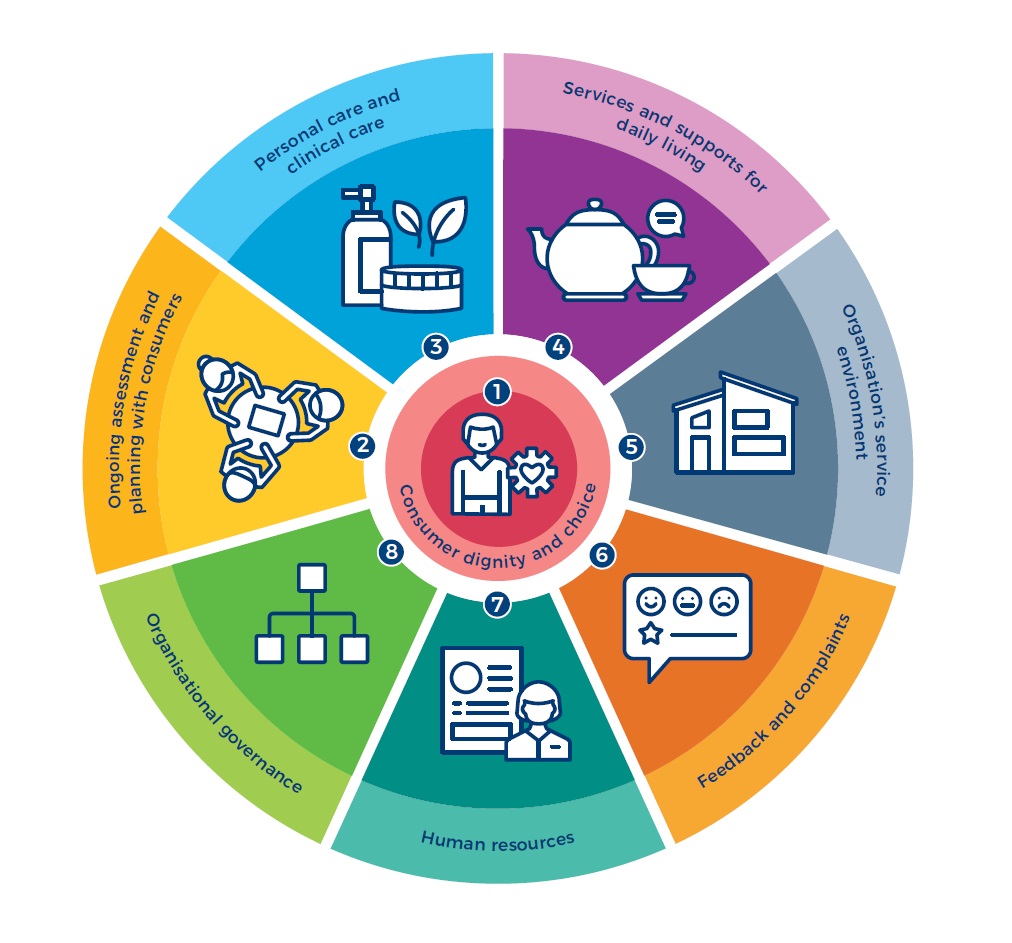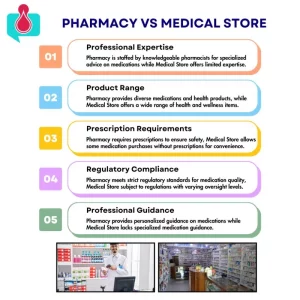Accreditation Standards for Aged Care & MMR – Pharmacists Education in Australia
The Australian Pharmacy Council (APC) has developed comprehensive “Accreditation Standards for Aged Care and Medication Management Review (MMR) Pharmacists Education Programs”. These standards establish a robust performance outcomes framework, ensuring that pharmacists working in aged care settings and conducting medication management reviews are well-prepared to meet the demanding requirements of their roles.
Why Do These Standards Matter
As Australia’s population ages, the need for specialized pharmacists in aged care facilities continues to grow. These accreditation standards play a crucial role in:
- Enhancing patient safety
- Improving medication management in aged care
- Ensuring high-quality pharmaceutical care for older Australians

photo by: Aged Care Quality & Safety Commission
The Australian Pharmacy Council: Safeguarding Public Health
The APC serves as Australia’s independent accreditation authority for pharmacy education. Operating under the National Registration and Accreditation Scheme in collaboration with the Pharmacy Board of Australia, the APC works tirelessly to protect public health through rigorous educational standards.
Key Domains of Competency for Aged Care Pharmacists
The accreditation framework focuses on five essential domains that pharmacists must master:
1. Professionalism in Practice
- Emphasizes ethical and legal responsibilities
- Promotes cultural safety in pharmacy practice
- Ensures patient-centred care is the top priority
2. Communication and Collaboration
- Stresses clear, respectful communication with patients and caregivers
- Facilitates effective teamwork among healthcare professionals
- Improves overall patient care through better information exchange
3. Person-Centred Medication Management
- Requires tailored medication plans for individual patients
- Focuses on improving health outcomes through personalized care
- Addresses the unique needs of older adults in medication management
4. Safe and Quality Use of Medicines
- Promotes leadership in medication safety initiatives
- Improves medication management systems in aged care facilities
- Ensures high standards of pharmaceutical care for older Australians
5. Research, Inquiry, and Education
- Encourages ongoing research in aged care pharmacy
- Supports mentorship programs for new pharmacists
- Promotes continuous education and training in geriatric pharmacotherapy
Impact on Australian Healthcare
By implementing these comprehensive standards, the APC ensures that pharmacists across Australia can provide safe, high-quality care in aged care settings. This is particularly crucial in environments where complex medication regimens are common and proper medication management can significantly impact patient outcomes.
The Accreditation Standards for Aged Care and Medication Management Review Pharmacists represent a significant step forward in ensuring excellence in pharmaceutical care for older Australians. By focusing on these key competencies, the APC is helping to create a workforce of highly skilled pharmacists ready to meet the unique challenges of medication management in aged care settings.
Common Questions About Accreditation & MMR Review Pharmacists in Australia
The approval of accreditation standards for credentialing aged care and medication management review (MMR) pharmacists in Australia is a critical step in ensuring the highest quality of care for older Australians. Here are some common questions that arise in this context:
What is the Purpose of Accreditation Standards?
- Quality Assurance: To guarantee that pharmacists who specialize in aged care and MMR meet specific standards of knowledge, skills, and experience.
- Patient Safety: To ensure that patients receive optimal medication management, reducing the risk of adverse drug events and improving overall health outcomes.
Who Sets the Accreditation Standards?
Australian Pharmacy Council (APC): The APC, an independent authority, develops and oversees the standards.
What Are the Key Components of the Standards?
- Knowledge and Skills: The standards outline the essential knowledge and skills required for aged care and MMR pharmacists, including:
- Understanding of geriatric pharmacology and medication management
- Ability to conduct comprehensive medication reviews
- Knowledge of aged care facilities and their specific needs
- Experience: The standards may require a certain level of experience or practical training in aged care settings.
- Ethical Conduct: Adherence to professional ethics and codes of conduct is a fundamental requirement.
How Are Accreditation Programs Evaluated?
Rigorous Assessment: The APC conducts a thorough evaluation of accreditation programs to ensure they meet the established standards.
- Curriculum Review: The curriculum, teaching methods, and assessment procedures are examined.
- Faculty Qualifications: The qualifications and experience of faculty members are assessed.
- Facilities and Resources: The availability of adequate facilities and resources for training is considered.
What Benefits Do Accredited Pharmacists Offer?
- Expertise: Accredited pharmacists possess the specialized knowledge and skills needed to provide high-quality care to older patients.
- Confidence: Patients and healthcare providers can have confidence in the abilities of accredited pharmacists.
- Improved Outcomes: Accredited pharmacists can contribute to better medication management, reduced hospital admissions, and improved quality of life for older Australians.
How Can Pharmacists Achieve Accreditation?
- Complete an Accredited Program: Pharmacists must complete an accredited education program that meets the APC’s standards.
- Meet Additional Requirements: Depending on the specific standards, pharmacists may need to meet additional requirements, such as completing a supervised practice or passing an examination.
By addressing these common questions, we can better understand the importance of accreditation standards and their role in ensuring the highest quality of aged care and medication management services in Australia.
[Article Sources]






